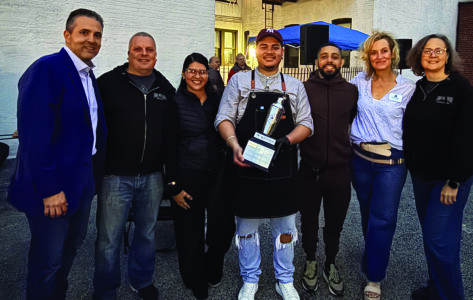A year ago, when Chinese immigrant Eddie Chen opened Chang Thai Cuisine on 86th Street near Gelston Avenue, he did so without any government support. In a situation he feels is common for immigrant entrepreneurs, he had never heard of any assistance programs.
People dont really know if theres such help available, he said, adding You dont really know where to find or where to ask for the information, or what type of help you can get.
Chens experience is not an unusual one. Last month, the Fund for Public Advocacy and ACCION USA, in partnership with the office of Public Advocate Bill de Blasio, published a survey of 625 immigrant-run businesses in New York City that found that 92 percent of immigrant entrepreneurs opened their businesses without any help from the city — financial, legal or otherwise. Additionally, more than half of the business owners that failed to receive such services said they were unaware the programs existed.
Immigrant businesses are an economic blind spot for New York City, de Blasio said. We set out to solve the data deficit so we can start tailoring city programs to also suit the specific needs of immigrant entrepreneurs.
It is the language barrier that keeps many immigrant entrepreneurs unaware of city assistance programs, according to Wenqin Lin, who immigrated to the United States from China 17 years ago and opened Super Five Discount Store on Fifth Avenue between 85th and 86th Streets.
Its because of the language problem limited English, Lin explained. But also because theyve never heard of these programs available to them.
Reshma Saujani, executive director of the Fund for Public Advocacy, would like to change that. Because of the survey results, the Fund for Public Advocacy — a non-profit organization within the public advocates office — will be launching listening tours throughout the five boroughs, to spread awareness of city programs assisting immigrant entrepreneurs, from financial counseling and marketing assistance to help applying for licenses and permits.
Additionally, 100 immigrant-owned businesses will be selected for a pilot program, in which potential projects such as website creation and social media marketing will be tried out, with the goal of implementing effective programs as city policy.
Weve got to make sure immigrant business owners arent left behind, Saujani said.
Lin proposes that the city do that by requesting non-native merchants be informed about government programs when they apply for a tax ID number. Additionally, he suggests the public advocates office advertise in local foreign language newspapers to get the word out. As his daughter Jinxiu Lin points out, this would be more effective than foreign ads in English publications.
As immigrants, we prefer to read our own newspapers, she said. My dad reads the newspaper every day, but its the Chinese version.
Regardless of the approach, Saujani believes these assistance programs would help all city residents.
If we empower immigrant entrepreneurs to strengthen and grow their businesses so they lure more New Yorkers, that benefits everybody, she said.

 On the Avenue: ‘Gin Merchant’ drink coming to a bar near you!
On the Avenue: ‘Gin Merchant’ drink coming to a bar near you!  On the Avenue: Community golfs ‘fore’ good cause
On the Avenue: Community golfs ‘fore’ good cause